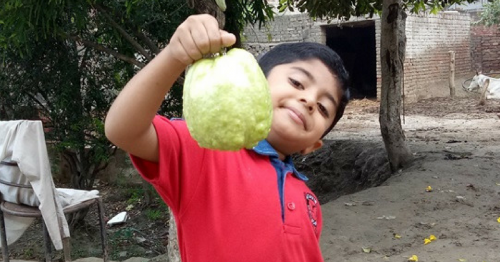Software Engineer Quits Job to Bring Organic Jumbo Guavas to Our Homes
Neeraj claims that one can earn a minimum of ₹ 10-12 lakh per acre by growing these guavas.
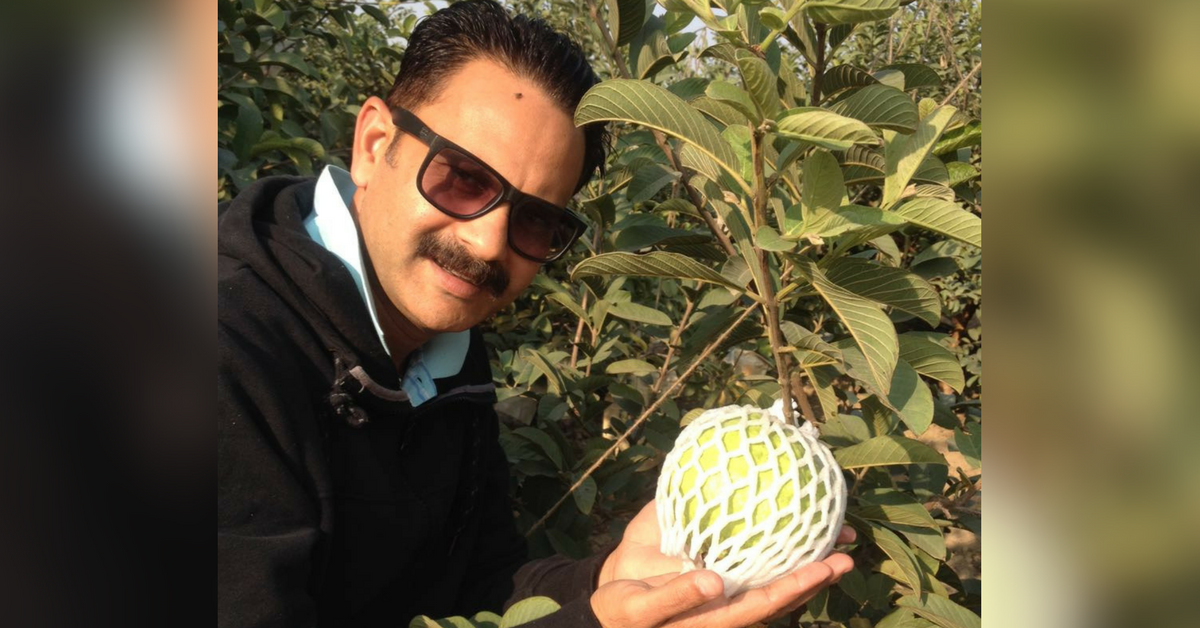
Neeraj Dhanda would have remained a software engineer all his life had he not visited the VNR nursery in Raipur, where he saw the ‘Jumbo’ guava for the first time.
Neeraj was born in a farmer’s family in Sangatpura village of Jind district in Haryana. Although no one in his family wanted him to become a farmer, Neeraj had an instinct right from childhood, that he could do well in farming.
“I would always be amazed at the fact that a farmer could make hundreds of seeds from just one seed. Have you seen a more profitable business anywhere? But then I was too small to understand why farmers were getting poorer day by day,” says Neeraj while talking to The Better India from his farm.
After obtaining a degree in Computer Engineering, Neeraj worked as a software developer in a reputed company in Gurgaon and Faridabad.
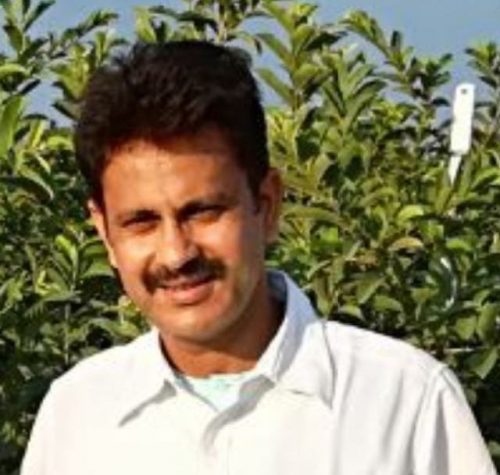
His family was against his wish to become a full-time farmer, so Neeraj kept trying to settle down in the software world. However, due to his lack of interest in the work he was doing, the software firm he started had to bear a considerable loss. In 2004, Neeraj finally decided to quit his well-paying job and switch to full-time farming.
“During my student days, I got some saplings of strawberries from Mahabaleshwar and planted them in our farm. The produce was excellent, and I was looking for the satisfaction of applying my brains to grow my own farm rather than selling my knowledge for the salary I get,” he explains.
Initially, he stopped the traditional farming of pulses and vegetables at his farm and started growing the Allahabad safeda variety of guava.
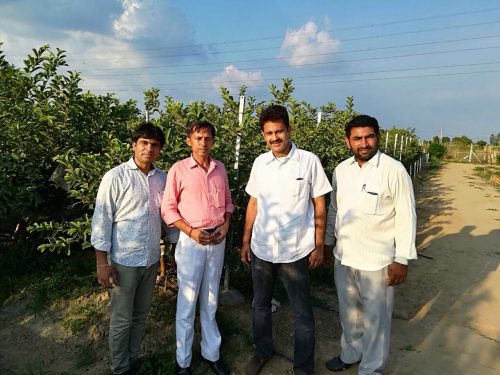
The quality of the produce was superior to the ones available in the market, as Neeraj had grown them using organic methods. However, when he took his produce to the wholesale vegetable and fruit market, he found out that a farmer has no right to decide the price.
Neeraj had declared that he would be selling his guavas for ₹ 15 per kg, but the middlemen informed him that they were buying it at the price of ₹ 7 per kg from others and would be giving the same to him. When Neeraj did not budge, the middlemen refused to buy anything from him. As these guavas had a shelf life of only day or two, Neeraj suffered a loss and was offered only ₹ 3 per kg for the guavas.
“All those questions on why farmers were poor were answered that day. A farmer works hard, pays the price of the seeds and fertilisers as per the cost decided by the shopkeeper, he gives the labour wages as per their demand, he also pays the transport cost as per the transporter. How is it fair that a middleman, who has done nothing, gets to decide the price of his produce?” asks an emotional Neeraj.
After this incident, Neeraj concluded that farmers could prosper only if they ditch the middlemen and sell their produce directly to the consumer. Thus he decided to set up his own counter at the market after much resistance from the middlemen.
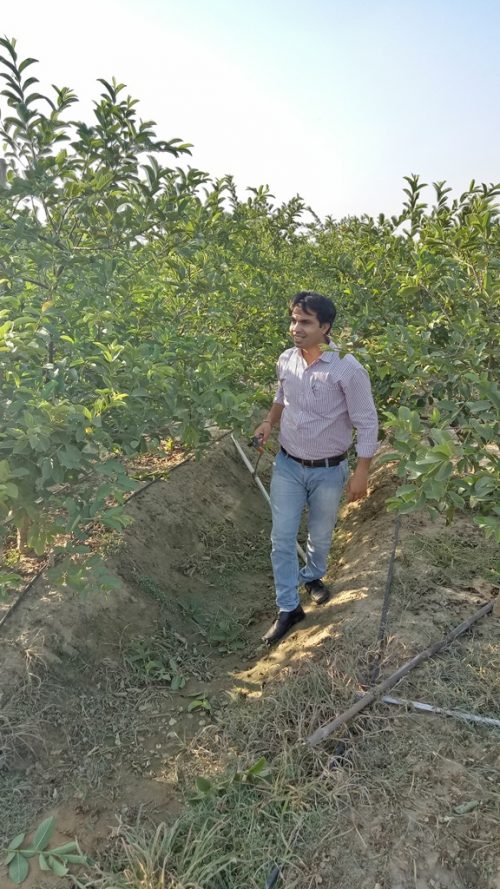
“While I could not get the price that I had initially decided upon, I would get at least ₹ 11 or ₹ 12 for them when I started selling them directly,” he says with a smile.
Neeraj was also in search of a fruit that would have a longer shelf life.
His quest ended at the VNR nursery, where he stumbled upon the VNR-Bihi variety of guava, which often weighs more than half a kilo and has a shelf life of longer than 15 days.
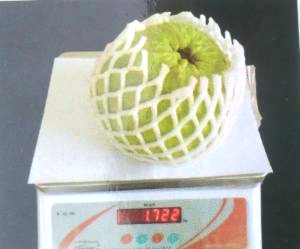
The man behind VNR-Bihi is Narayan Chawda, a farmer from Gomchi village in the Raipur district of Chhattisgarh. Having come across a Thailand guava, Chawda was impressed by its shape, size, crispiness, taste, less number of seeds and long shelf life.
Chawda, who has so far developed over numerous varieties of vegetable and fruit crops, initiated a breeding program for a guava that would suit India’s agro-climatic conditions and palate, way back in 1996.
Neeraj was so impressed by this jumbo guava that he immediately purchased 3000 saplings, and planted them in 3 acres out of 7.5 acres of his land in Jind.
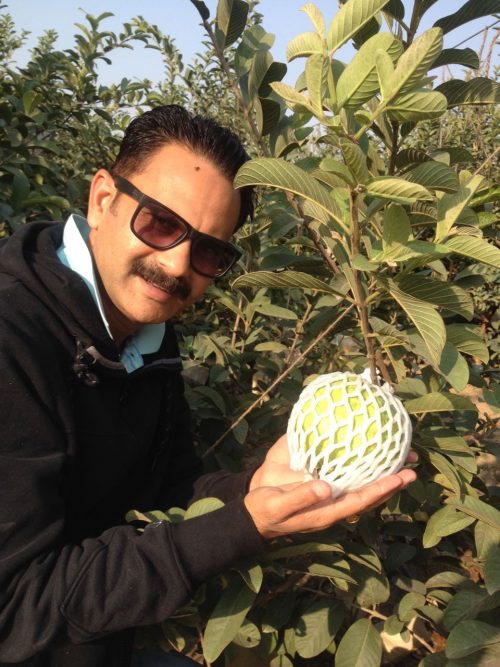
The first year was a little tricky as half of the saplings died due to the climatic condition. However, this was a good learning experience. Neeraj slowly learnt how to take care of the plants and the guavas right from the time when they are just as big as the shape of a peanut.
“You cannot overload the branches. The weight of a particular branch should not be more than 2 kgs. So, if one wants heavier guavas, they can keep only two best flowers and shed the rest on a particular branch. Thus one tree can produce around 80 to 100 kgs of guavas, and each guava weighs around 800 gm to 1 kg,” Neeraj explains.
Neeraj also explains how growing this guava needs hard work and dedication.
The guavas have to be covered with a foam cover, then with anti-fogging polythene and newspapers when they are just the size of a peanut.
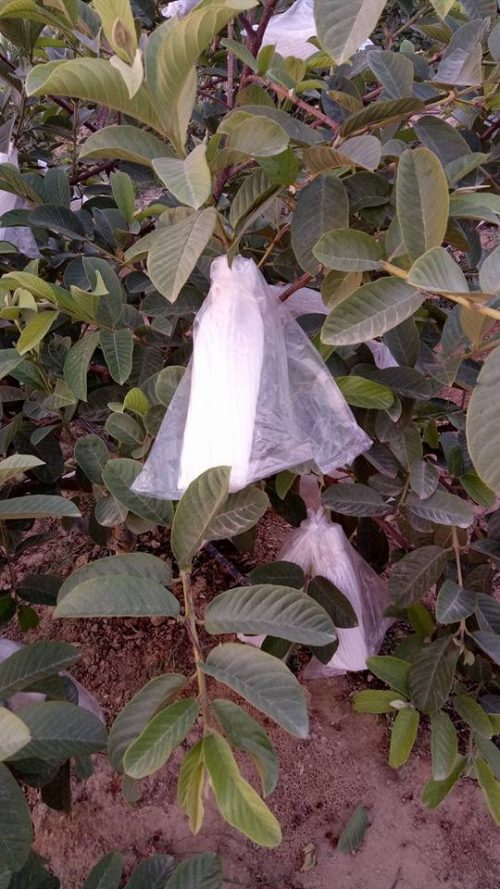
Until the time the guavas are ready to be plucked, the farmer has to keep checking them and change the wraps as per the climate.
“We also spray a natural solution made from the leaves of the neem trees on the fruit, right from the beginning. The cover also protects the fruits from any external touch, insects or moisture,” he explains.
Being a software engineer helped Neeraj when it came to marketing these guavas.
Neeraj does not sell his produce in the market and uses his website, Door Next Farm, to take orders and delivers them to the doorstep of customers.
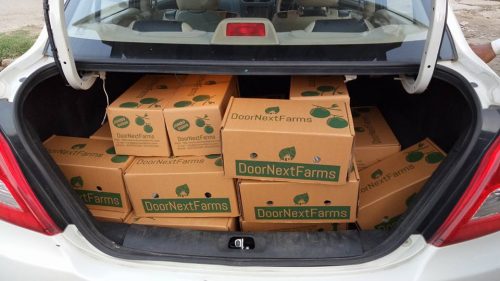
Neeraj now has a team of 6 farmers, and his friend, Rajesh, has also recently joined him in the venture.
Neeraj claims that one can earn a minimum of ₹ 10-12 lakh per acre by growing these guavas and conducts classes to train the youth of the village.
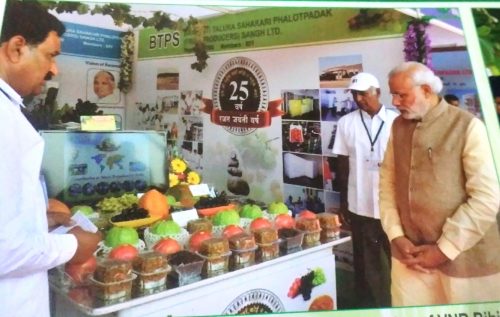
When we praise him for his noble work, he says that he is selfish enough to do this as he wants the community to grow so they can also have enough quantity to have their own processing unit and value-added products.
“These days, when an elderly farmer comes to my farm, their grandchildren also come along to ask me questions about how they can utilise their ancestral land and make a profit through farming. This is the change I wanted to see. I am sure the next generation will pick up organic farming methods, as well as marketing without middlemen as they are an educated lot unlike their ancestors who had to face severe losses mainly due to a lack of awareness,” he says.
You can write to Neeraj at [email protected] .
Like this story? Or have something to share? Write to us: [email protected], or connect with us on Facebook and Twitter.
NEW: Click here to get positive news on WhatsApp!
If you found our stories insightful, informative, or even just enjoyable, we invite you to consider making a voluntary payment to support the work we do at The Better India. Your contribution helps us continue producing quality content that educates, inspires, and drives positive change.
Choose one of the payment options below for your contribution-
By paying for the stories you value, you directly contribute to sustaining our efforts focused on making a difference in the world. Together, let’s ensure that impactful stories continue to be told and shared, enriching lives and communities alike.
Thank you for your support. Here are some frequently asked questions you might find helpful to know why you are contributing?


This story made me
- 97
- 121
- 89
- 167



